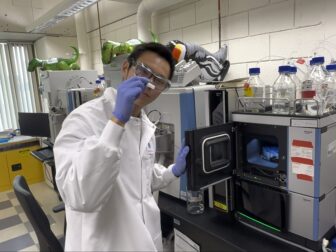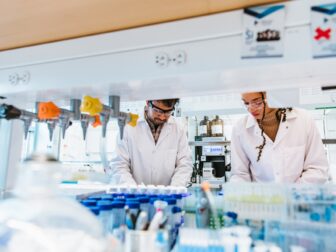Alan Wong

Copper Depletion as a New Treatment Strategy for Pediatric Leukemia
Summary
In the same way that humans adapt to new environments to survive, so too do cancer cells. When cancer cells spread to different parts of the body, they adapt to different nutrient environments. In childhood leukemia, it’s especially deadly when cancer cells spread to the brain. In our work, we are studying whether adapting to different environments might create vulnerabilities in leukemia cells that can be targeted by drugs. We have shown that leukemia cells depend on copper, an essential nutrient that they exploit to stimulate their growth and spread. In mouse models of human leukemia, restricting dietary intake of copper slows the growth of systemic leukemia and leukemia in the brain, and improves the effect of existing therapies. This work could broaden the effective therapies for leukemia, with special attention to the spread of leukemia to the brain, helping to improve long-term outcomes for childhood leukemia patients.
Watch a Q&A with Alan
I'm thankful to be a recipient of this fellowship to support my research. As an international student from Canada, I am otherwise ineligible for many PhD fellowships in the USA. My current research focusses on leukemia, which is one of the most common childhood cancers. In some patients, the cancer spreads to the brain and can cause significant morbidity and mortality. This funding will support my ongoing efforts to uncover novel therapies that can effectively treat leukemia in the brain while sparing healthy brain tissue. My work ultimately aims to improve the survivorship and quality of life of childhood leukemia patients.

